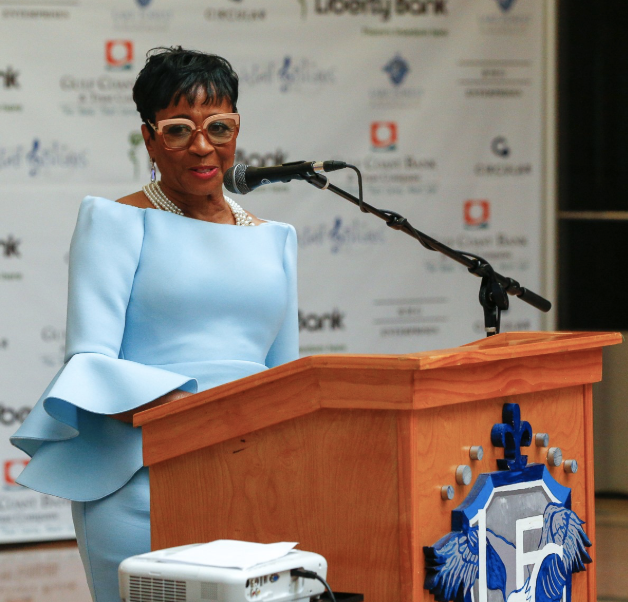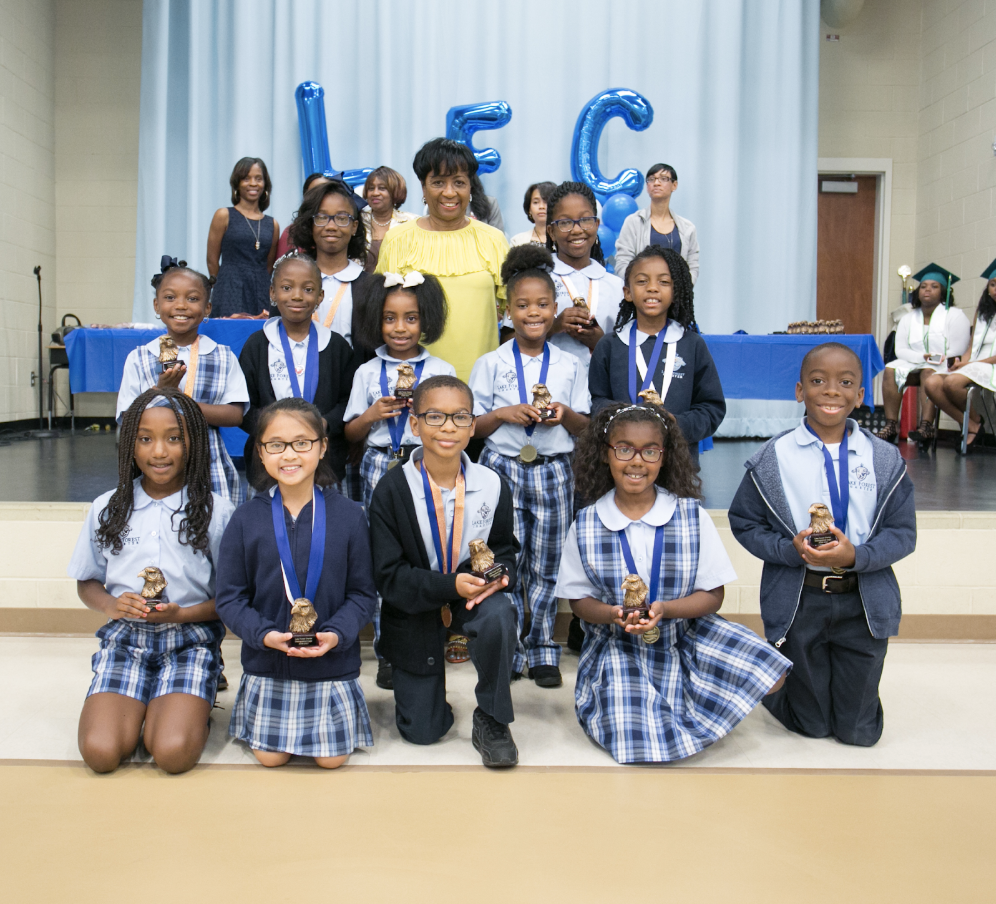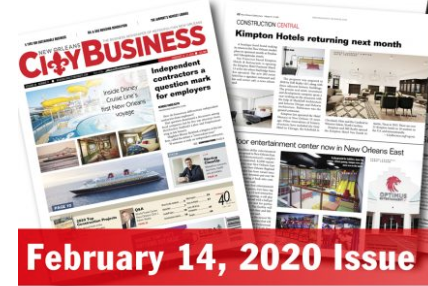This article originally appeared in the February 14th issue of New Orleans CityBusiness.
Educating New Orleans for 44 Years:
What Mardele Early, CEO of Lake Forest Charter,
Knows About Our Schools

Mardele Early is in her 14th year as the CEO of the “A” rated Lake Forest Elementary Charter School. Here, she shares her perspective on educational leadership.
When I wake up in the morning and I open my eyes, I see my school. First I see the gate, and there in my mind’s eye, I’m making sure the grounds look good. Then I see myself coming in the door, going into the gym, walking the halls, and entering classrooms, envisioning what excellent teaching and learning looks like. Then I return to the day itself: I get ready, head to school, and make my vision a reality.
I have been an educator in New Orleans for forty-four years. Today, I am CEO of Lake Forest Charter School. In this role, I am ultimately responsible for everything, from the blades of grass outside the building, to what the children learn in their classrooms, to the utility bill for the facilities. I grew into this position. I began my educational leadership as a classroom teacher. I went from being a teacher to being a grade level leader, to department leader, to an assistant principal, then a principal, and now CEO. I came up through the ranks and I learned every step of the way. This means I know how to work with people in all different roles, and when a situation arises, I know how to deal with it, because I’ve lived it, too.
As CEO Of Lake Forest, I am involved in the community of New Orleans East. I live here. This is where I serve, and I am intricately involved in any issues that go on locally. I am an employer here, I am a community member here, and I sit at the table. In any local political meetings, I speak to how any changes are going to impact my school.
I am a leader both within my school and outside it, interacting with our local educational and political landscape. In education in New Orleans today, our leadership looks different than it did before the storm. Before Katrina, you were responsible for your building, but there were many decisions being made at a district level, and you had to do what they thought was best. Now, we get to do what we know is best for our own children and our own classrooms.

For me, knowing what is best for my school and my children started with being a classroom teacher years ago. Being a teacher was crucial for every role that followed; it gave me the understanding of what educators and students really need. It also gave me my first taste of educational leadership. At Lake Forest, we refer to our teachers as “instructional leaders.” There’s a lot we can learn about leadership from what great teachers do.
A great teacher and a great leader can manage many different aspects of a role at once. A great teacher knows their role is to push each child to their highest level of student achievement, while nurturing them and keeping the flame alive for a love of learning. That teacher is also keeping an eye out for any changes in that child’s behavior, having consistent contact with parents, and constantly looking for where each child can grow. It is a lot to carry, but great teachers manage to hold it all.
A great leader, and a great teacher, is also a planner. They have to be detailed and see the whole picture, just like a CEO. Their organization is their individual classroom. They need to account for how each child is growing – intellectually, socially, emotionally and beyond. They keep track of all that, and they use it to shape the schedule and the details of each day. Their lesson plans don’t leave any time wasted. If a lesson is set for a 55 minute block, they plan for 65 minutes, so there’s no moment that goes by without something to learn.
Great leaders and teachers take responsibility and respond to data. If a certain percentage of a class did not do well on a skill, if too many of them are scoring C+ or B- instead of As, a great teacher takes that in and is not offended by it. They find a new way to get that information across and they reteach it. They start again and learn. They go back to the drawing board and get it right, just as they would encourage their children to do.
There’s a great deal to learn from teacher-leaders, but I learned from my other roles, too. As a department chair, I had practiced being a collaborator and bringing together teams of people to meet on common ground. As an assistant principal and a principal, I learned what it was like to see a school as a full puzzle, with many pieces that I was responsible for.
In all of those roles, I carefully studied and I learned from others. I was an assistant principal at Kennedy High School for one year, after being an administrative assistant. While I was there, I learned the ropes from Kennedy’s principal, Dr. Anita Dumas. She shared so much with me and I just ate it up. I kept a spiral notebook of all the departments in the high school and I would write down what I learned – from each of the academic disciplines to the jobs like managing data, scheduling classes, counseling, coaching sports, directing the band. I talked to everybody and knew everyone had something to offer. So I learned from the folks in the office, from the secretary of payroll, to the person keeping attendance, and I looked at all the books they kept. I realized you can learn something from everybody, and you should.
In my journey as an educational leader, I have also seen the importance of knowing your community. I was the principal at Hansberry School on Clouet street between 1995-2001. At that time, being a principal was being a neighborhood mayor. The neighborhood knew you, and you had to reach outside your building, from the grocery store to the cleaners.
Still today, I constantly look both within my school’s direct community, of the East, and outside of it, to the broader world my children will grow up into. In this complicated world that we are in today, how do we help our children see the goodness in life? How we can help them cope with the meanness in our society? Striving to answer those questions is a moment for true leadership.
After 44 years, I feel fortunate to be in the position to ask myself these questions and to do this work. I feel blessed. I feel that I am doing what I was created to do, from before I was even born. I am energized to continue doing it each day.
